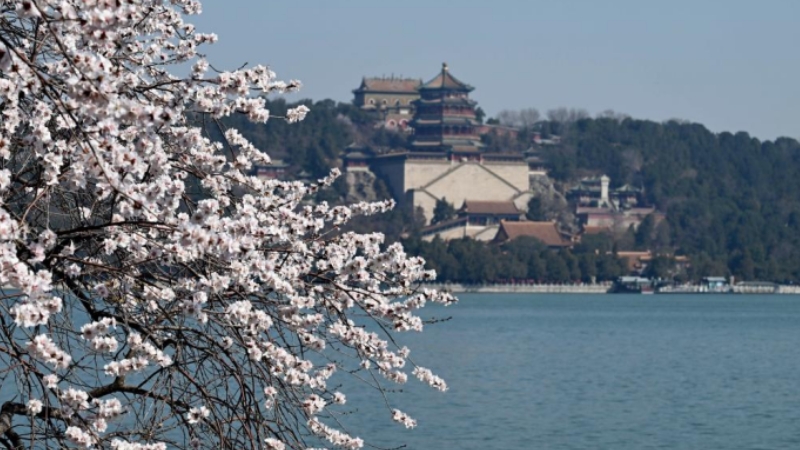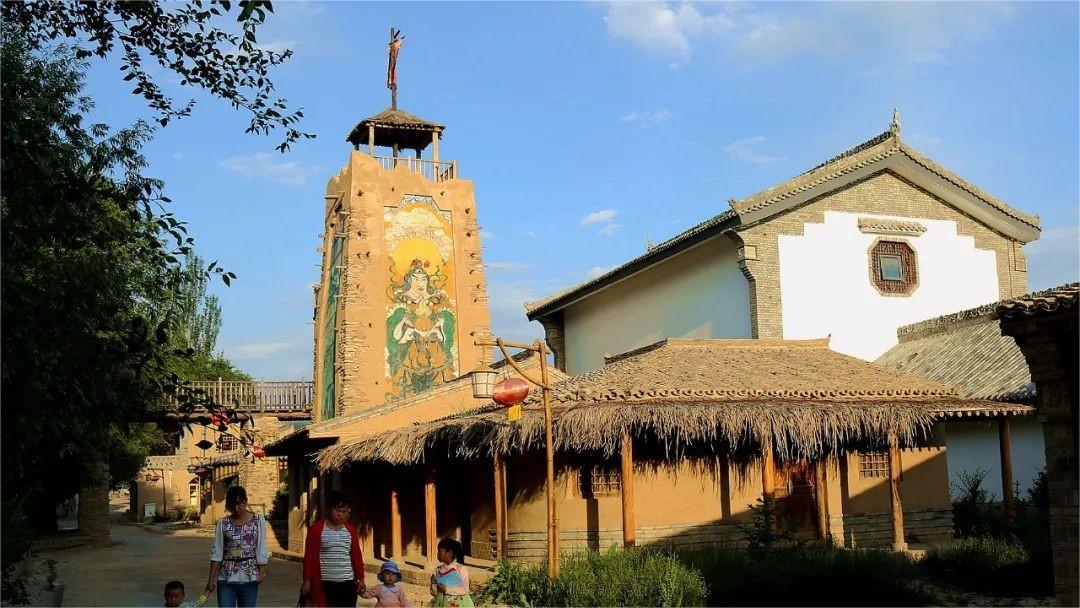Plateau tree becomes cash cow for villagers
CHENGDU, March 24 (Xinhua) -- In mid-March, villagers in Gudiao Village, deep in the mountains of Tibetan Autonomous Prefecture of Garze, southwest China's Sichuan Province, were busy pumping water from the river below to water a batch of saplings they had just planted.
Malus toringoides is the species name for these trees. They bear red fruits and thrive at an altitude of about 3,000 meters. Villagers refer to them as "genque" trees.
The tender shoots of the tree can be used for tea, and their leaves for medicinal purposes. The red fruits can also be processed into beverages and jams.
"We call the genque fruit 'ruby', as in recent years, more and more villagers have gotten rich by planting these trees," said Tashi Dorje, Party chief of the village.
Before large-scale planting, genque trees were commonly found in the area but often neglected by the villagers. In 2016, there were more than 50,000 genque trees in Daofu County where Gudiao Village is located, with an annual fruit yield of around 1,500 tonnes.
"At that time, the mountains were covered with genque fruits, with most decaying and left untouched on the ground," recalled Chen Gang, former director of Daofu environmental protection and forestry bureau.
Some villagers took the fruits to experts for analysis and found that they contain various vitamins and amino acids, and are quite nutritious.
In 2017, people in Daofu began developing the genque fruit industry and launched a beverage made from the fruits.
"At first, the beverage tasted sour. Later, we improved the formula and the packaging and began large-scale production in 2019," said Chen.
Without any prior experience in running the beverages business, the villagers had to do everything from scratch.
After years of efforts, genque fruits from Daofu can be processed into jams, canned goods, beverages, and other products. The signature beverage product is now well-known locally for its sweet and sour taste and rich flavor.
In recent years, demand for genque fruits has continued to grow. In 2022, Daofu planted 32,000 genque trees, and the number grew to 143,000 in 2023. This year, the county purchased 177,000 seedlings to promote planting in five townships.
With the growth of the genque industry, there has been a significant increase in demand for genque seedlings. Villagers in Gudiao regard it as another major source of income in the genque seedling industry.
"Saplings over 1.2 meters tall can be sold for 3 yuan (about 42 U.S. cents) each. Last year, I earned more than 60,000 yuan from selling seedlings," said villager Yungdrung Phuntsog, noting that his income is much higher than normal work for migrant workers.
Currently, Gudiao has emerged as an important supplier of genque seedlings, with all of its 68 households engaged in seedling production and the average annual household earning exceeding 5,000 yuan.
"Local villagers have truly lived better lives through afforestation, attesting to the concept that 'lucid waters and lush mountains are invaluable assets," said Xu Tao, the Party chief stationed at the village.
Tashi Gyatso, deputy director of the rural revitalization bureau of Daofu, said that in the past two years, the planting of genque seedlings alone has provided employment opportunities for more than 10,000 people in six townships, with an average annual income increase of over 2,000 yuan per person.
Photos
Related Stories
- Investing in the new: foreign firms tapping into China's emerging industries
- Biz leaders offer thoughts on China's future at two sessions
- Once-impoverished China village shares with world story of green shift
- Shandong's country road naming initiative maps pathways of progress
- China's high-quality development creates opportunities for int'l businesses
- Feature: Cadres at your service: Chinese way to inspirit villagers out of poverty
Copyright © 2024 People's Daily Online. All Rights Reserved.









